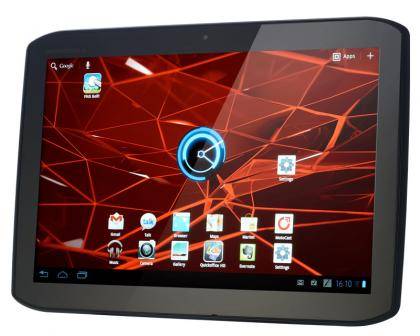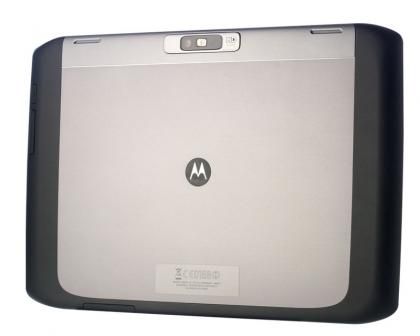The Motorola Xoom was among the first android tablets to launch using the tablet-specific Honeycomb 3.0 operating system. It was supposed to bring Android into direct competition with the Apple iPad 2 , but based on the sales of such tablets, that certainly isn't the case to date. The new Xoom 2 refines the original hardware, with numerous improvements, while the installed Honeycomb 3.2 does the same for the operating system. Despite this, the Motorola Xoom 2 is released into a fast-moving market, and could look out of date before it's even found its feet.

The hardware is undeniably impressive to behold and handle. It's far slimmer and lighter than the original, and it shares a number of design traits in common with its smartphone sibling - the Motorola RAZR . Its tapered corners look stylish and make it more pleasant to hold, in addition there's a rubberised edge running around the back of the Xoom 2 to give you a better grip. Should you drop it, the screen is covered by toughened Gorilla Glass and the whole tablet has a liquid-resistant coating which deals with splashes like water off a ducks back - as an inadvertent test with lager and the RAZR proved this to us. It feels very sturdy and well-built, again much like the RAZR.
The styling may appeal, but it's certainly not minimal, with a two-tone rear panel and numerous slots and ports. On the bottom (in landscape orientation) are micro USB and micro HDMI ports. A mains charger is provided for the former with a neat little plug-adaptor, so it's not too much of a pain to carry about. The HDMI output can be used for playing movies or games on your HD TV. Alongside this is a flap covering what could be SIM and micro SD slots, however both of these are blocked in. Motorola has held off announcing a 3G version, though we're hoping it does as tablet SIM prices have plummeted to as low as £5 a month. The lack of a micro SD slot is a more serious disappointment, as you can't add more storage if you need it.

On the upper left-hand side of the back are the usual power button and volume rocker - they're neatly recessed and sit just to hand in landscape, but are near-impossible to find when holding the tablet in portrait. Also on the rear is a 5-megapixel camera that can shoot HD video. The quality of stills is on par with most tablet cameras we've seen: a little noisy, a little blurry and a little disappointing. The video's a tad better, but it's still workmanlike compared to the best smartphones.
The IPS-technology screen is far more impressive, being among the brightest we've seen, with vibrant colours and good viewing angles. Motorola debuts its Intelligent Grip Suppression technology here, so you can leave a finger or thumb on the screen for added grip, and the touchscreen will ignore it so you can carry on making gestures with other digits. Unfortunately, this only works intermittently, so the home screens were fine to navigate, but the camera wouldn't shoot until we removed our thumb from the screen.
